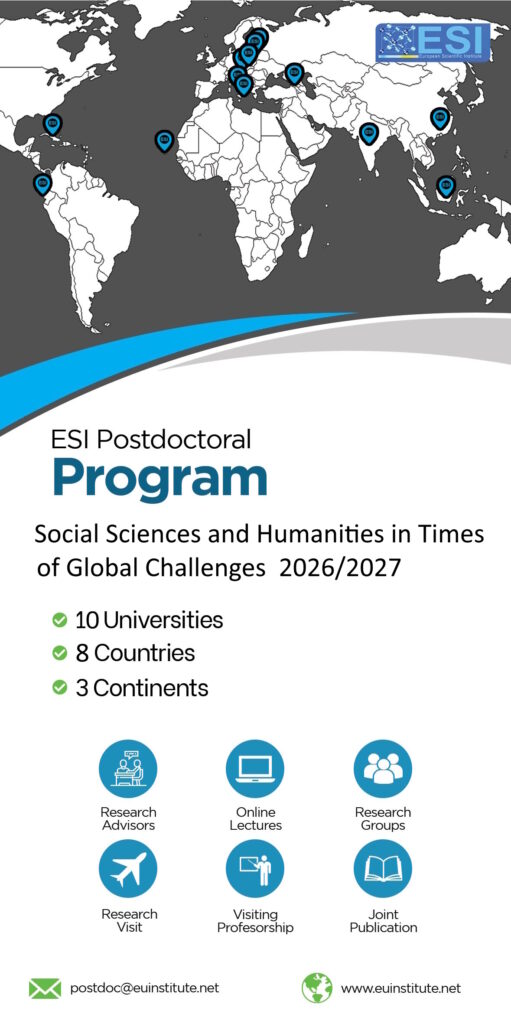The European Scientific Institute (ESI) Postdoctoral Program is designed to advance the academic and professional careers of Ph.D. holders in the fields of social sciences and humanities. The program combines mentorship, international collaboration, and research dissemination to equip scholars with tools for impactful contributions in a world facing ongoing crises and transformations.
Program Structure
The program is offered in two modules:
- Hybrid Module – Online activities combined with a short research visit at one of ESI’s partner universities
- Fully online module – A flexible option for candidates who prefer to complete the program remotely.
Program Activities
Fellows engage in a dynamic mix of academic and professional development activities, including:
- Online masterclasses with international scholars.
- Guided research with an experienced advisor.
- Working group collaboration with peers from diverse backgrounds.
- Participation in international scientific conferences, workshops, and seminars.
- Research visit (Hybrid Module) at one of ESI’s partner institutions in Spain, Italy, Hungary, the Czech Republic, Latvia, Georgia, India, Ecuador, or China. During the visit, fellows may attend the ESI Annual Conference, join workshops, in-person meetings with their advisors, and deliver guest lectures.
Expected Outcomes
Each fellow is expected to:
- Co-author one research article with his/her research advisor.
- Co-author one research article with his/her working group.
- Present his/her findings at ESI conferences and international events.
- Build international networks for future collaboration.
Academic Fields
The program welcomes applicants from all areas of Social Sciences and Humanities, including but not limited to:
- Pedagogy, Education, and Psychology
- Economics, Sociology, and Political Science
- Law, Philosophy, and History
- Health Care, Tourism, and Music
- Anthropology, Geography, and related subfields
Language of the Program
Activities are conducted in English or Spanish, depending on the candidate’s preference.
Why This Program?
In times marked by post-pandemic recovery, armed conflicts, climate change, and rapid digital transformation, the world needs fresh scholarly perspectives and solutions. This program empowers researchers to critically engage with such challenges and to contribute to sustainable, inclusive, and peaceful futures
ESI Schedule
Dr. Franca Daniele
- 14 March, 16h Madrid time
D` Annunzio University Chieti-Pescara, Italy
Dr. John B. Strait
- 18 April, 16h Madrid time
Sam Houston State University, USA
Research Visit
- 10-18 May, 2025
University of Catania, Italy
Dr. Roberta Heale
- 10 October, 16h
Laurentian University, Canada
Research Visit
- 20-25 November 2025
Grigol Robakidze University, Georgia
Research Visit
- 27 October - 7 November 2025
University of Saint Joseph, Macau
Dr. Jovan Shopovski
- 14 December, 16h
European Scientific Institute, ESI
Dr Franca Daniele, D` Annunzio
University Chieti Pescara, Italy
Dr. Keith Morrisson
University of Saint Joseph, Macao
Dr. Robert W. McGee
Fayetville State University, USA
24 May 2024, 16h Madrid time
Dr. Karl Atkin
University of York, UK
27 September 2024, 16h Madrid time
Dr. Daniel B Hier
Missouri University of Science and Tecnology, USA
"Academic Writing and Academic Publishing"
Dr. Jovan Shopovski
European Scientific Institute, ESI
"Research Integrity"
17 December 2024, 16h Madrid time
16 h Meeting with the research advisor
16 h Meeting with the working group
ESI Masterclass
16 h Meeting with the research advisor
16 h Meeting with the working group
ESI Masterclass
Reflections on quality of life: The academic life path
Prof. Karl Atkin
University of York, UK
Research Visit University of Catania, Italy
Research Visit University of La Laguna, Spain
"A practical guide on how to write a good book? "
Dr. Sabrina P. Ramet
Research Visit (University Sant Joseph, Macao)
Meeting with the advisor
Dr. Jovan Shopovski
Research Integrity: Latest concerns and challenges
Dr. Daniel Hier
Missouri University of Sscience and Technology, USA
WG Meeting
Meeting with the advisor
Dr. John B. Strait
Sam Houston State University, USA
WG Meeting
"Music and the Brain"
- 19 February 2022 16h ( Madrid time)
Dr. Jamshed Bharucha
WG meeting
- 5 March 2022 16h ( Madrid time)
ESI Masterclass
- 15 March 2022 16h ( Madrid time)
Dr. Massimo di Giannantonio, "G. d'Annunzio" University, Chieti-Pescara, Italy
Topic: CovId 19 Pandemic: How many correlated psychopathologies?
Meeting with the advisor
- 18 March 2022 16h ( Madrid time)
WG meeting
- 9 April 2022 16h ( Madrid time)
ESI Masterclass
- April 14, 16h Madrid time
Meeting with the advisor
- 15 April 2022 16h ( Madrid time)
Research Visit (University of La Laguna):
- 1-15 May 2022
Research Visit (University of Almeria):
- 15-30 May 2022
WG Meeting
- Friday 9 September 2022 (16h Madrid time)
Meeting with the advisor
- Friday 16 September 2022 (16h Madrid time)
The Research and Methods section and its importance. Statistical insights
- Friday 22 October 2022 (16h Madrid time)
ESI Masterclass
- Saturday, 19 November 2022 (16h Madrid time)
Meeting with the advisor
- Friday 18 November 2022 (16h Madrid time)
The Research and Methods section and its importance. Statistical insights
- Saturday 19 November 2022 (16h Madrid time)
Dr. Brian Sloboda University of Maryland, USA American Statistical Association
Meeting with the advisor
- Saturday 10 December 2022 (16h Madrid time)
Meeting With the group
- Monday 12 December 2022 (17h Madrid time)
ESI Masterclass
- Monday 12 December 2022 (16h Madrid time)
"Music and the Brain"
Dr. Jamshed Bharucha
WG meeting
ESI Masterclass
Dr. Massimo di Giannantonio, "G. d'Annunzio" University, Chieti-Pescara, Italy
Topic: CovId 19 Pandemic: How many correlated psychopathologies?
Meeting with the advisor
WG meeting
ESI Masterclass
Meeting with the advisor
Research Visit (University of La Laguna):
Research Visit (University of Almeria):
Research Visit, University of Catania, Italy
WG Meeting
Meeting with the advisor
ESI Masterclass
The Research and Methods section and its importance. Statistical insights
Dr. Brian Sloboda University of Maryland, USA American Statistical Association
Meeting with the advisor
Meeting with the Working Group
ESI Masterclass
Meeting with the advisor
Meeting with the Working Group
ESI Masterclass
ESI Lecture
- 29 March, 15h Madrid Time (Zoom)
“An Academic Career: Some Things I Have Learned Along the Way”
by Dr. Daniel B. Hier, Emeritus Professor at University of Illinois and Professor at Missouri University of Science and Technology, USA.
ESI Lecture
- 22 April, 15h Madrid Time (Zoom)
“Leadership”
by Dr. Carlos Azcoitia, Emeritus Professor at National Louis University, USA
Academic Writing
- 22 April, 16.00h Madrid Time (Zoom)
Dr. Robert McGee & Dr. Jovan Shopovski
Working group meeting.
- 24 April 14h Madrid time (Zoom)
Meeting with the research advisor(s).
- 24 April 15.30h Madrid time (Zoom)
ESI Lecture
- 14 May 15h Madrid Time (Zoom)
Dr. Ana Pineda, University of Alicante, Spain
“Mindful Scientific Writing”
ESI Lecture
- 14 May 16h Madrid Time (Zoom)
Dr. Mathias Grunke
University of Cologne, Germany
Meeting with the working group
- 22 May 14h Madrid time (Zoom)
Meeting with the research advisor(s).
- 22 May 15h Madrid time (Zoom)
ESI Lecture
- 1 June 15h Madrid Time (Zoom)
Dr. Michael Shaughnessy
Eastern New Mexico University, USA
“Communicating Science, Statistics and Scholarship”.
WG Meeting
- Friday 10 September 2021 (16h Madrid time)
The Research and Methods section and its importance. Statistical insights
- Saturday 23 October 2021 (16h Madrid time)
9th Mediterranean Interdisciplinary forum on Social Sciences and Humanities, MIFS, University of Almeria, Spain
- 26-28 October, 2021
Meeting with the research advisor(s).
- 12 November 16h Madrid time (Zoom)
"Big Data in Neurology"
- 13th November 2021 (16h Madrid time)
Dr. Jeffrey Loeb
John S. Garvin Endowed Chair of Neurology and Rehabilitation, The University of Illinois at Chicago, USA
Reflections on quality of life: The academic life path
- Tuesday 14 December 2021(16h Madrid time)
Meeting with the Working group
- Saturday 18 December 16h Madrid time (Zoom)
ESI Lecture
“An Academic Career: Some Things I Have Learned Along the Way”
by Dr. Daniel B. Hier, Emeritus Professor at University of Illinois and Professor at Missouri University of Science and Technology, USA.
ESI Lecture
“Leadership”
by Dr. Carlos Azcoitia, Emeritus Professor at National Louis University, USA
Academic Writing
Dr. Robert McGee & Dr. Jovan Shopovski
Working group meeting.
Meeting with the research advisor(s).
ESI Lecture
Dr. Ana Pineda, University of Alicante, Spain
“Mindful Scientific Writing”
ESI Lecture
Dr. Mathias Grunke
University of Cologne, Germany
Meeting with the working group
Meeting with the research advisor(s).
ESI Lecture
Dr. Michael Shaughnessy
Eastern New Mexico University, USA
“Communicating Science, Statistics and Scholarship”.
WG Meeting
The Research and Methods section and its importance. Statistical insights
9th Mediterranean Interdisciplinary forum on Social Sciences and Humanities, MIFS, University of Almeria, Spain
Meeting with the research advisor(s).
"Big Data in Neurology"
Dr. Jeffrey Loeb
John S. Garvin Endowed Chair of Neurology and Rehabilitation, The University of Illinois at Chicago, USA
Reflections on quality of life: The academic life path
Meeting with the Working group
Topic: Social Sciences and Humanities in Times of Global Challenges
Place: Online plus Research Visit at one of the Host Universities.
Research Visit:
10 days in Spain, Italy, Poland, the Czech Republic, Latvia, India, Georgia, Hungary, or China. The University of La Laguna, Tenerife (Spain), University of Catania (Italy), D’Annunzio University of Chieti–Pescara (Italy), Roma Tre University, (Italy), Daugavpils University (Latvia), AMBIS University (Czech Republic), Saint Joseph University (USJ), Macao, (China), Grigol Robakidze University, Georgia, Budapest Metropolitan University, Hungary, Simon Bolivar University, Ecuador.
Academic Domains:
Pedagogy, economics, education, law, sociology, philosophy, psychology, history, geography, political science, health care, tourism, music, anthropology, and related fields and their subdomains…
Start: 01 March 2026 End: 28 February 2027
Program Activities and Structure
The program duration is 12 months and consists of
three (3) parts. The program activities are online except for the
10 days research visit at one of the Host Universities.
During the 1st part, the candidate will have meetings with the
research group selected by the organizer. Meetings with the
research adviser(s) will also be held online. During this part, a
short course on good research practices and academic writing
will be organized, where researchers will share their knowledge
and discuss the recent developments in the area of academic
publishing. The candidate will also attend the ESI masterclasses
delivered by the ESI network of experts.
- Creating the research working group and 2 meetings
- Meeting with the research advisor (at least 2)
- Attending the ESI Masterclasses
- Attending the academic writing course
- Presenting the draft paper (at a conference or to the research advisor)
During the 2nd part, the candidate will work on data mining through surveys or/and interviews in order to provide a dataset for the research. The candidate may also become part of the organizing committees of the ESI academic conference or forum. During this part, the candidate visits the Host University and will organize in-person meetings with the research advisor and the working group. If more candidates are working on the same or similar topic at the same Host University, they may decide to organize a workshop/roundtable. In agreement with the research advisor, during the research visit, the candidate may deliver a guest lecture(s) for the students at the Host University.
- Data-mining for the working paper
- Attending the ESI masterclasses
- Meeting with the working group
- Meeting with the research advisor
- Research Visit
- Guest lecture (not mandatory)
- Presenting the working paper at the ESI conference
- Participating in the Organizing Committee of one of the ESI Annual Conferences (not mandatory)
In the 3 rd part, the candidate is involved in writing the working paper with the research advisor and the joint paper with the working group. The process is followed by discussion in the research group, the program group of experts, and guidance by the research adviser(s). During the last part of the program, the candidate presents the final version of the paper at online or in- person conference(s) and submits the paper for publication to selected journal(s). The candidate can decide where to submit the paper for publication.
- Meeting with the research advisor (2 at least)
- Meeting with the working group
- Attending ESI Masterclasses
- Final version of the paper(s)
ESI Program Organizer
The European Scientific Institute, ESI, is in charge of the full logistics and communication with the applicants and candidates during the program.
The ESI will provide an adequate group of experts in various fields who will not only deliver their lectures for the program`s purposes but will also be available for advice and opinions.
The organizer shall provide free participation of the candidates to the suggested list of international academic conferences and workshops.
The organizer shall suggest open-access academic journals for
publication of the academic output of each candidate.
Upon agreement with the Host Universities, the organizer will provide access to libraries and databases.
Together with the program director at the Host University, the organizer will provide the necessary information and assist the candidate with documents for visa application (if required).
Research Advisers
The research adviser is a Professor at one of the Host University Departments or a member of the ESI group of experts. The research adviser monitors the academic activities of the candidate by providing suggestions regarding the research methods and preparation of the working paper. He or she may also participate in the research activities and be enlisted as a co-author of the academic output of the candidate.
The Host University and the Organizer of the program, taking into consideration the research topic and the availability of the researchers at a given moment, select the research adviser(s) for each candidate.
The Organizer may also suggest to the candidate to cooperate with other research advisers.
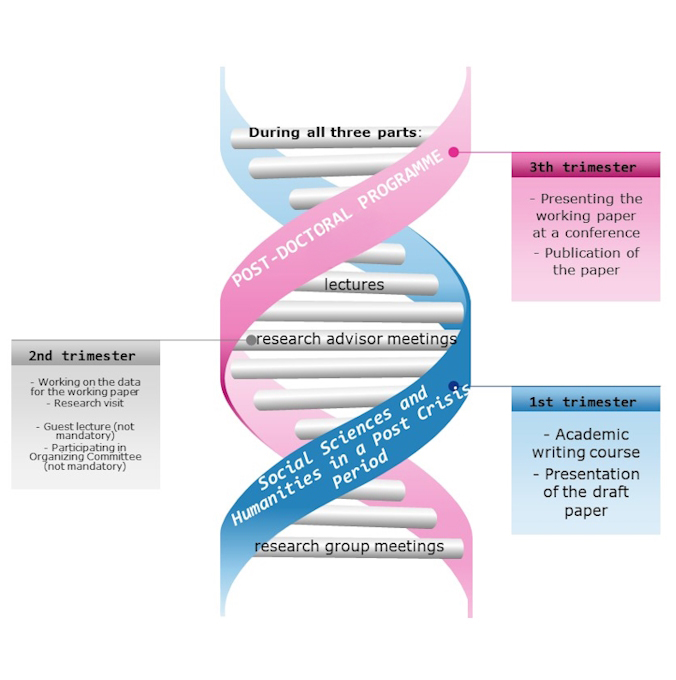
Certificates
A certificate for successful completion of the ESI postdoctoral training “Social Sciences and Humanities in Times of Global Challenges” will be awarded to the candidate after the completion of all 3 parts of the program.
The certificate will be issued by the European Scientific Institute.
Depending on the host University, some certificates will also contain the host university stamp and logo and the certificate will be issued jointly. However, in any case, the host university will issue a confirmation for the research stay and academic activities of the candidate.
– Additional documents, which describe the concrete academic activities of the candidate will be issued.
– Examples of certificates that are already issued >>>
ESI Masterclass
In the past 13 years, the European Scientific Institute, ESI, has created a wide network of experts from different universities worldwide covering various academic domains. For the purpose of the program, every month, ESI will invite an experienced Professor who will deliver an online lecture on a cutting-edge topic. The program aims to invite scholars who address topical issues from a multi or interdisciplinary perspective. The aim of these lectures is to promote intellectual curiosity about the various ways we can study human societies. Hence, speakers are not expected to directly talk about the topics of any particular candidate, but they should be a source of inspiration and widen one’s intellectual horizons.
ESI Working Groups
ESI research groups are organized on a multidisciplinary basis to bring together Fellows from different disciplines working on a similar range of societal challenges. The groups will meet regularly during the duration of the training. The regular meetings of the groups will consist of presentations of the work in progress and the discussion of more general research issues, such as the reading of key or recent works related to the group’s theme. The ESI working groups are chaired by ESI-affiliated experts in appropriate fields.
ESI Annual Conference
Each year, the program hosts one major conference. Until now, the conferences have been organized at the University of La Laguna, Spain, Simón Bolívar University, Ecuador, and the University of Catania, Italy.
The focus of this conference is on meetings with other ESI fellows and presentations of research activities in front of a wider audience
Working Papers
A compulsory part of the training for every candidate is creating a Working paper. The working paper should be in the format of a scientific article or a book chapter. It should be prepared and ready for submission. This working paper will be posted at one of the Host University repositories or in a preprint repository and ready to be submitted for publication. However, when a candidate is not motivated to make the content public, he/she should contact the organizer of the program explaining the reasons for the exception.
Code of Conduct
All of the program participants are introduced to the ESI Code of Conduct and are familiar with its content. The Code of Conduct applies to all people involved in the ESI Postdoctoral Program including Postdoctoral Candidates, research advisors, WG members, WG chairs, and program directors. The ESI Code of Conduct is available >>> here.
Research Visit
As part of the program, each candidate will visit the selected Host University. The minimum period of the research stay is 10 days. The host University will offer its amenities and other services whenever possible. The exact dates of the visit are previously determined by the organizer and are available at least 3 months in advance. If more than 4 candidates are visiting the same host University the organizer provides a program for the group visit.
ESI Training 2026/2027 Host Institutions
- University of La Laguna, Tenerife, Spain
- Univrsity of Catania, Italy
- Roma Tre University, Italy
- D'Annunzio University of Chieti-Pescara, Italy
- Daugavpils University, Latvia
- AMBIS University, Czech Republic
- Saint Joseph University (USJ), Macao, China (*FREE ACCOMMODATION)
- Grigol Robakidze University, Georgia (FREE ACCOMMODATION)
- Simon Bolivar University, Ecuador
- Budapest Metropolitan University, Hungary
The candidate will be attached to one of the Host University Departments. Depending on the accepted topic and the availability of the academic staff, the Host University will suggest one or more researchers who will work closely with the candidate in the course of the program.
The candidate will complete a research visit at one of the Host Universities within a period of 10 days.
Upon mutual agreement, the candidate may be offered to deliver lectures for the students at the Host institution. However, the Host Institution is not obliged to make any payments to the candidate for his/her academic activities.
*Each accepted candidate who will choose the University of Saint Joseph, Grigol Robakidze University as his/her Host University will be offered free accommodation in a single room at the University Campus.
The candidates who will be affiliated with the University of Saint Joseph (Macao) will also be offered reduced prices for meals at the university canteen. The approximate costs for meals for a 10-days stay are 150 EUR in total.
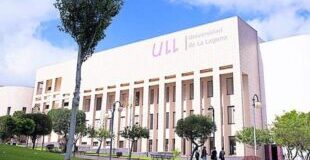
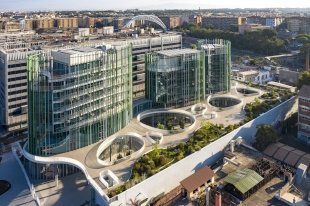
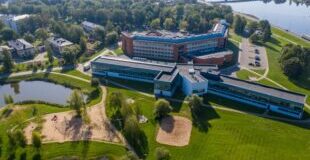
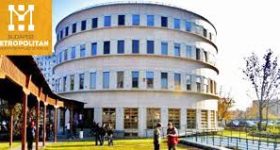
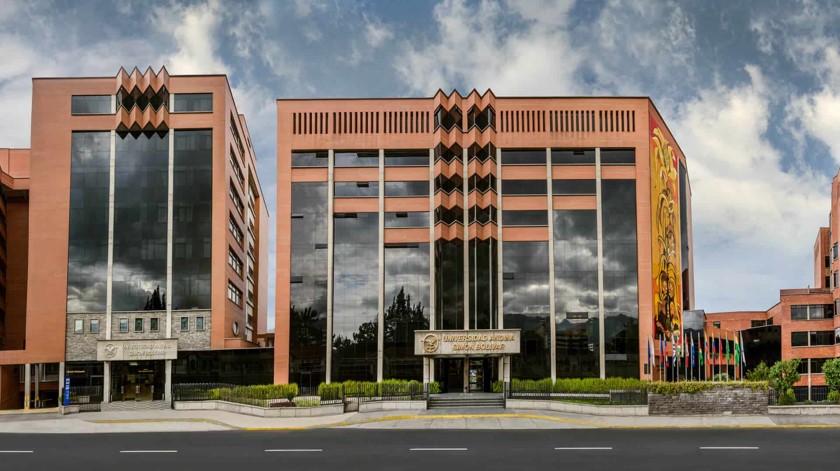
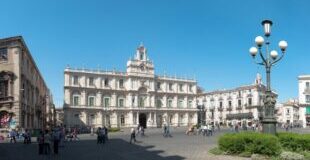
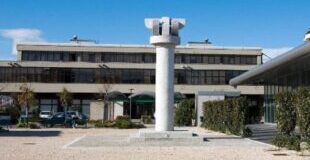
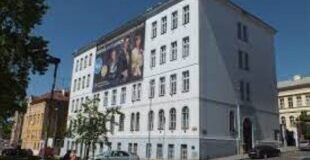
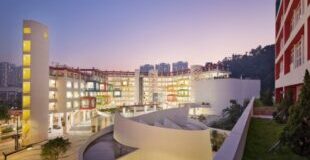
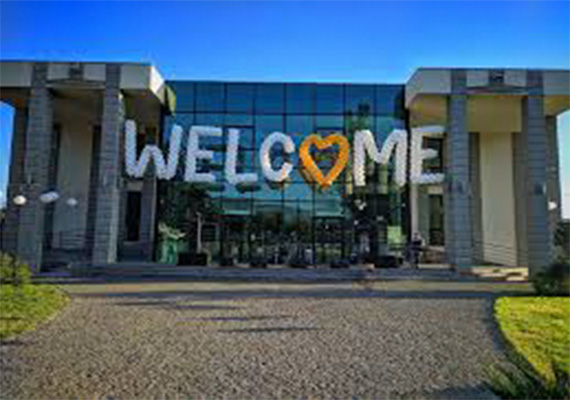
(FREE ACCOMMODATION)
Scholarship/Participation fee
Deadline for application for the ESI Program 2026/27 :
February 5th (12h Madrid time)
The ESI postdoctoral training program accepts applications from PhD holders regardless of their nationality or experience at academia or outside. Potential candidates should provide:
- Application Form including a research proposal (up to 2 pages). Download HERE
- Copy of PhD diploma or certificate, which confirms thesis defense.
- Short CV
- List of publications
Language Certificates
Applicants who are not native language speakers should provide a language certificate. For English language, international certificates are acceptable: Cambridge, TOEFL, and IELTS. However, if the candidate fails to provide a certificate, the language assessment will be part of the online interview after the application.
Scholarship/Fee
We encourage you to apply for funding from your university or international funds. However, the long-term objective of this training program is to obtain funding for covering the operating costs thus providing full scholarship for each accepted candidate. For the time being the following options are offered:
Scholarships 2026/27
- Roberto Kertesz Full Scholarship
- 6 places available.
- Selected candidates will be fully released from fee. Free accommodation at the University campus during the research visit in Georgia, Macau or India will be offered .
Partial Scholarship:
- 30 places available
- Each accepted candidate will contribute with 1,950 EUR in total.
- Travel, accommodation or other costs are usually not included. However, at some of our host Universities free accommodation is provided in this amount .
Partial Scholarship (Online module):
- 10 places available
- Each accepted candidate will contribute with 890 Euros in total.
- The candidates are not obliged to conduct a research visit.
Regular participation fee (without scholarship):
- 5 places availabe
- Tuition fee: 3,650 EUR in total.
- Travel, accommodation or other costs are not included. However, at some of our host Universities free accommodation is provided in this amount .
The tuition fee is to be settled in full at the beginning of the training program. It covers academic participation but does not include travel, accommodation, or living expenses during the research stay.
Get In Touch
ESI Postdoctoral Office:
University of La Laguna
Pabellón de Gobierno, C/ Padre Herrera s/n Apartado Postal 456 38200,
San Cristóbal de La Laguna Santa Cruz de Tenerife, Spain
Email Us
Indisputably, education is the basic pillar in every society. The kind of education people receives gives them a refined behavior and helps them to earn a decent living, thereby contributing constructively to the society. In today’s global world where we all face unique challenges such as global warming and new viruses, the reform of the education system is imminent especially with the occurrence of the COVID-19 pandemic. This event imposed changes in all spheres of human life including the educational system. The switch to online lectures led to different challenges in different parts of the world. Some countries face some basic issues like Internet connection and lack of computers, while others are discussing the learning strategies and are focusing on the social and psychological implications of the students and the teachers as well. This research group will discuss the current challenges the educational system is facing with focus and research on the selected subdomains.
Chair:
Dr. Mary Ann Hollingsworth, University of West Alabama, USA
Members:
| Dr. Aurela Saliaj, Albania | ||
| Dr. Raymond Arthur Chipfakacha, Zimbabwe |
ESI Program: October 2021 – December 2022
Chair:
Dr. Elena Hunt, Laurentian University, Canada
Members:
| Dr. Paul Kwame Butakor | ||
| Dr. Syed Mir Muhammad Shah | ||
| Dr. Tamar Kakutia |
ESI Program: March 2022 – June 2023
Chair:
Dr. Tamar Kakutia, IBU, Georgia
WG Members:
| Dr. Shazia Hasan | ||
| Dr. Umran Yazıcılar | ||
| Dr. Dhurata Lamcja |
ESI Program: October 2022 – December 2023
Chair:
Dr. Mary Ann Hollingsworth, University of West Alabama, USA
WG Members:
| Dr. Debapriyo Nag | ||
| Dr. Seray Tatli Dalioglu | ||
| Dr. Fathi Shamma | ||
| Dr. Yousef Methkal Abd Algani | ||
| Dr. Muhammad Shahid Habib |
The beginning of the COVID-19 pandemic opened up so many questions. Some undisputable questions which are of main concern were about finding the best strategies to deal with the virus and ensure a good health condition of the people. The lockdown during the pandemic and the closure of the borders, restaurants, cafeteria, etc. is still having a huge effect on the economies and tourism. Many small and medium businesses were not able to survive these economic turbulences imposed by the governments as a response to the virus. At the same time, many people lost or are afraid of losing their jobs. More than ever, this crisis called for global leaderships and the necessity of finding the right answers and making the right decisions. Quality Management, Innovation, and human resources management are crucial in overcoming these contemporary challenges. The uncertainty for the future raises the questions on how long the pandemic would last, what is next, and how we should deal with it? How will the economy recover in the post-COVID world? Are new economic models on the way? What is stakeholder capitalism and how should it work? How should the global leadership and decision look like? Is solidarity necessary more than ever? Hence, those are the dilemmas and questions that this research group will discuss. In addition, a topic for joint research and conclusions will be selected.
Chair:
Dr. Brian Sloboda, University of Maryland, USA
Members:
| Dr. Enriko Ceko, Albnia | |
| Dr. Anca Tamas, Romania | |
| Dr. Delia Rusu, Romania. | |
| Dr. Volkan Dayan, Turkey |
ESI Program: October 2021 – December 2022
Chair:
Dr. Monika Bolek, University of Lodz, Poland
Members:
| Dr. Vebina Resuli | |
| Dr. Seval ÖZBALCI | |
| Dr. Ilija Stojanovic |
ESI Program: March 2022 – June 2023
Chair:
Dr. Agata Gniadkowska-Szymańska, University of Lodz, Poland
WG Members:
| Dr. Ehsaneh Nejad Mohammad Nameghi | |
| Dr. Rashid Khalil | |
| Dr. Florin Aliu | |
| Dr. Jorge Cea Rodríguez |
ESI Program: October 2022 – December 2023
Chair:
Dr. Brian Sloboda, University of Maryland, USA
WG Members:
| Dr. Edmira Cakrani | |
| Dr. Sabahat Akram | |
| Dr. Enida Pulaj | |
| Dr. Olga Marthe Mbang |
The role of the state as a main actor in the international relations continues from the antique to the modern times. Despite some new trends imposed by globalization, the sovereign states are keeping the main role in the system. The COVID-19 pandemic has confirmed that the state is still the main actor regardless of the globalization and the numerous international governmental and nongovernmental international organizations. However, the pandemic opened dilemmas and challenges for the diplomatic relations. We can now speak about vaccination diplomacy – a term that has not been known before. All of the states today are struggling in dealing with the pandemic challenges altogether with the traditional diplomatic issues, politics, and economy. The state as a supreme institutional organization had to deal with the pandemic and impose some restrictions that are not always so popular between its own citizens. Additionally, the institutional capacities of a concrete country are not always sufficient and the necessity of international organizations and leadership is visible. This working group will discuss these issues and a topic for joint research will be selected.
Chair:
Dr. Eyal Lewin, Ariel University, Israel
Members:
Dr. Sila Turac Baykara, Turkey
Dr. Jorge Tenorio Fernando, Brazil
Dr. Ricardo Furfaro, Argentina
Chair:
Dr.Emilia Alaverdov, Georgian Technical University, Georgia
Members:
Dr. Andrej Semenov
Dr. Rasool Bukhsh Mirjat
Dr. Cenay BABAOGLU
Chair:
Dr. Francisco Flores, University of La Laguna
WG Members:
Dr. Daria Voyloshnikova
Dr. Maria Maclennan
The interdisciplinary approach on gender, culture, religion, and ethics can pave the way in providing understanding of some of the important issues our contemporary societies are faced with today. The culture is a category that is very often and most notably used in combination with religion, ethics, and gender. Due to the conceptualization of culture as a social web consisting of symbolic forms based on signs of meaning, the religion and its interpretations have become a metaphor for cultural difference and furthermore symbolic boundary-making in some societies. Through this way, it shapes social action in the world, not excluding the ethics in general. This is why it entails the understanding of religion, as a distinct province of meaning that is structured by processes of social symbolization that affects the society’s view on gender, ethics, and culture in most general terms. This might be quite different in different countries and societies. However, the notion of culture and religion is receiving new dimensions and context in the world of the COVID-19 pandemic, and this is a perfect ground for a debate by opening new horizons and perspectives.
Chair:
Franca Daniele, “G. d’Annunzio” University, Italy,
Members:
| Dr. Eirini Artemi, Greece | |
| Dr. Salwa Alinat-Abed, Israel | |
| Dr. Dana Kaplan, Israel |
ESI Program: October 2021 – December 2022
Members:
| Dr. Julijana Zhabeva | |
| Dr. Manotar Tampubolon | |
| Dr. Dorothy Ebere Adimora | |
| Dr. Miodraga Stefanovska – Petkovska |
The sustainable development by definition meets the needs of the present generation of the world population without compromising the ability of future generations to meet their own. Environmentally sustainable economic growth refers to economic developed society that meets the needs of all living today. Of course, it takes into the consideration the fact that there are developed countries, developing countries, and underdeveloped countries. However, the most important is that this was done without leaving future generations with fewer or less quality natural resources than those we have in today`s world. Someone can argue that sustainable development evolved as that of protecting the world’s resources while its true agenda is to control the world’s resources of today. The essence is the dual relationship between two elements, i.e., (1) the human activities in correlation to the nature of today, (2) in a way which does not diminish the prospects for future generations to enjoy a quality of life at least as good as our own. This may look like some kind of utopia but, in reality, it is the real need of our modern society. The conservation of tropical rainforests, the relations between technology and energy needs, especially of the big cites, and the concept of smart city is seen nowadays from both historical and future perspective.
Chair:
Dr. John B Strait, Sam Houston State University, USA
Members:
| Dr. Dastan Bamwesigye, Uganda | |
| Dr. Sara Casamayor Mancisidor, Spain | |
| Dr. Eda Ustaoglu, Turkey |
ESI Program: October 2021 – December 2022
Chair:
Dr. Iulia Muresan, University of Agricultural Sciences and Veterinary Medicine, Romania
Members:
| Dr. Satish Kumar Damodar | |
| Dr. Hamzo Khan Tagar | |
| Dr. Enkelejda Cenaj |
ESI Program: March 2022 – June 2023
Chair:
Dr. Janaka Jayawickrama, University of York, UK
WG Members:
| Dr. Chrysoula Kapartziani | |
| Dr. Eda A. Genc | |
| Dr. Nino Kharitonashvili |
This interdisciplinary group is composed of academic experts in different fields such as pedagogy, feminism, and politics. It will hold meetings in Spanish language and will try to find joint interest in a specific topic setting the approach through interdisciplinary lances. This topic will be analyzed in the light of the COVID-19 pandemic and the challenges it brings to our contemporary modern society with the accent of the Ibero-American countries. Also, it will combine the different academic models when conducting research and will make the most out of the different but, at the same time, very similar academic domains.
Chair:
Dr. David Perez Jorge, University of La Laguna, Spain
Members:
| Dr. Marcela A. País Andrade, Argentina | |
| Dr. Karla Judith Ruiz González, Mexico | |
| Dr. Norma Pizarro,Mexico | |
| Dr. Eliazar Gonzalez Carrillo, Mexico | |
| Dr. Egon Elier Montecinos, Chile |
ESI Program: October 2021 – December 2022
Chair:
Dr. Eva Mateo, ULL, Spain
Members:
| Dr. Julio E. Benitez Telles | |
| Dr. JORGE BALLADARES BURGOS | |
| Dr. Seibo Alexise KOUAKOU IKOSSIÉ | |
| Dr. Favio Farinella | |
| Dr. SAMANTHA GONÇALVES MANCINI RAMOS |
ESI Program: October 2022 – December 2023
Chair:
Dr. Claudia Milena Adler, University of York, UK
Members:
| Dr. Tornike Khoshtaria | |
| Dr. Assoman Serge Alain KOUAKOU | |
| Dr. Cinzia Recca | |
| Dr. GIORGIA MAVICA |
ESI Program: October 2022 – December 2023
Chair:
Members:
| Dr. Baghli Asmaa | |
| Dr. Marta Donolo | |
| Dr. Concetta Pirrone | |
| Dr. Sadia Malik | |
| Dr. Geranda Mulla |

